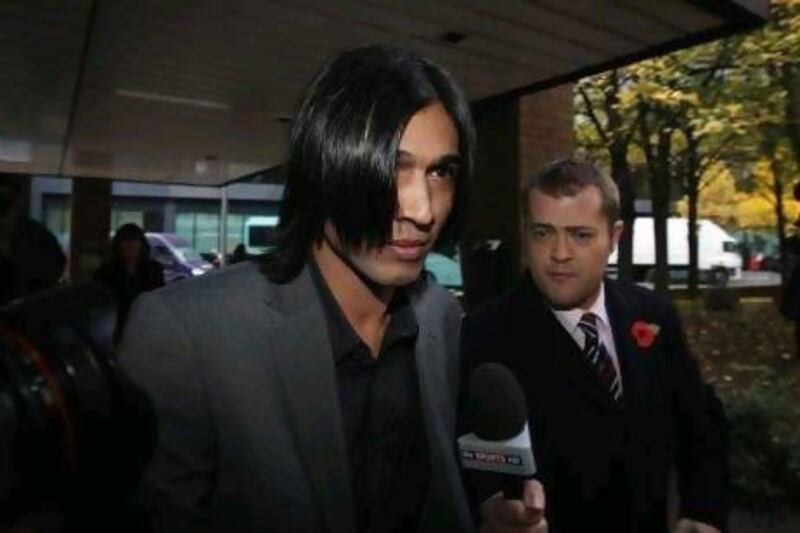My one prolonged interaction with Mohammad Amir came the morning after he was banned by the International Cricket Council (ICC) for five years in February 2011 in Doha, Qatar.
He had not yet accepted his guilt, pleading his innocence through an ICC hearing there.
The entire morning, no more than a couple of hours, was an awkward one, There was no real purpose to it; Amir wasn't going to talk on the record (all "out of the record" he said).
Another journalist from Pakistan was there and we didn't feel comfortable probing him.
In any case, he was maintaining innocence so there wasn't much to ask. Maybe he needed the company and we, fellow Pakistanis, brought a broad familiarity.
We skirted around much of the case and hearing, though occasionally he would touch upon aspects of it.
But much of the talk was casual stuff, heard at any gathering of males. Amir scanned through channels in his hotel room before settling on a Bollywood film, talking eagerly of his favourite actors and actresses.
His mood was naturally unsettled, flitting between despair and hope. One minute he would plot his own campaign back, bullishly maintaining he could keep fit over five years.
Almost immediately after he would despair that it is impossible for athletes to stay fit at that level for five years and that maybe he should resume his education and that he might get married and give up the game forever.
He joked with us, and mimicked senior players and officials (very well, too) but with affection, not malice.
He told us off for smoking like a son might a father, pointing to the picture of the rotted lung on the cigarette pack as if it were logic enough. "Why are you killing yourselves?"
He wasn't man-child as much as he was, for periods, both man and child whole, too smart and knowing for a stretch, innocent and untouched at others.
We left eventually but that sense of his two selves - man and child - reappeared sharply during his interview with Michael Atherton on Monday, the first time he has spoken publicly since admitting his guilt and going to a youth detention centre for three months.
Atherton has been a key voice throughout the case, arguing with some force that Amir should not have been jailed.
The interview made clear why he thought this: because, Amir said, he had effectively been blackmailed into bowling those no-balls by the agent Mazhar Majeed. A comprehensive investigative piece by Atherton in The Times adds exhaustive detail to this theory.
Perhaps it gets close to the truth of what happened but, both in the interview and the report, there are enough glimpses of both a man who knows and a child who was trapped inside Amir.
His giddy rise and subsequent straying, the manner in which his relationship with Salman Butt developed, the realisation now that fixers don't put a gun to your head, but instead slither their way through a social circle of punters and fans on tour, offering you fan worship, company, dinners, distractions and more; these are the tales of a boy.
But there are other moments when his actions are of a man who is speaking the truth but maybe not enough of it.
His entire communication with a Dubai-based businessman whom Amir knew as Ali, for one example, should have been open to more thorough probing.
But that is all past now. Ultimately, the full truth of what happened here will only emerge (if it ever does at all) once - and if - Butt, Mohammad Asif and Majeed come out and give versions of their own truth.
One thing is clear and must not be lost sight of. It is that Amir accepted his guilt, late and with qualifications, but he did nevertheless and very few have done that before.
Now he has served one punishment too and continues to serve out his ban, which, ironically, looks like the punishment that could hurt him most. The ICC may not say anything now, or do anything, but perhaps they will have a role to play as well.
Whatever he does now, whether he comes back into the game, studies, or even if he does nothing in particular, the hope is that he can pick up the shards of the broken life of a boy and piece them together into a complete life of a man.





